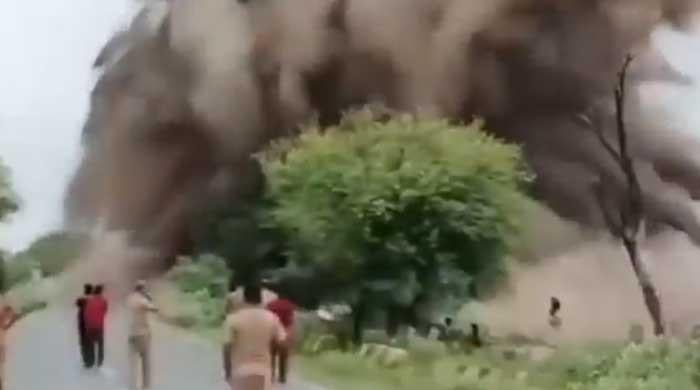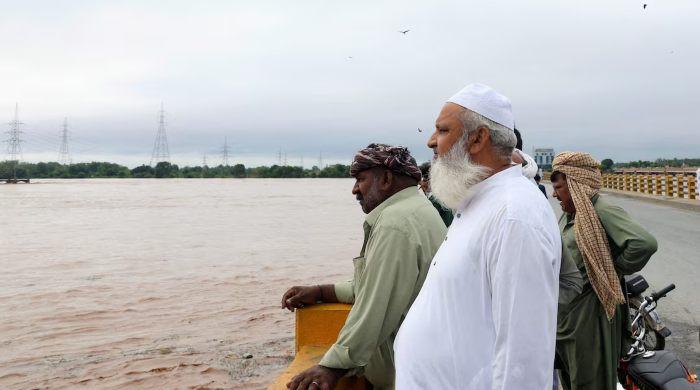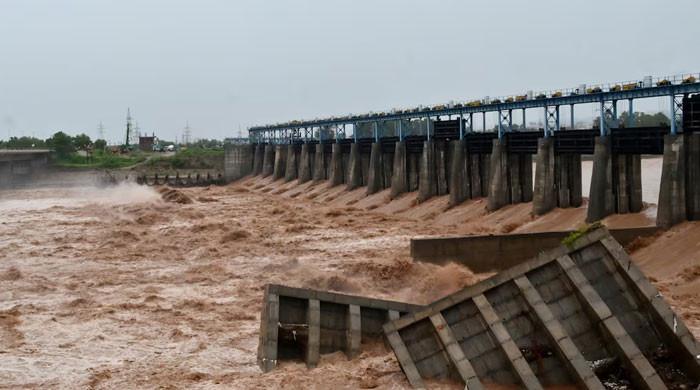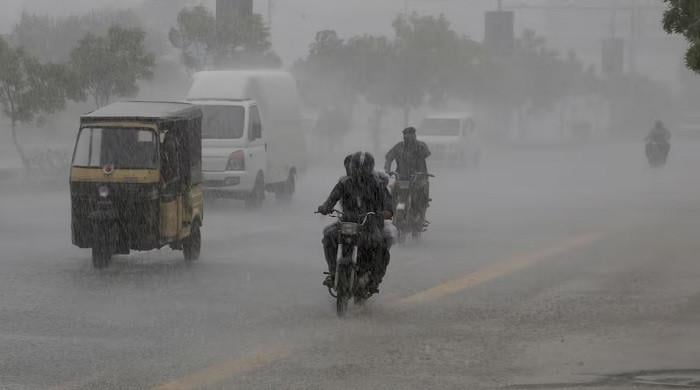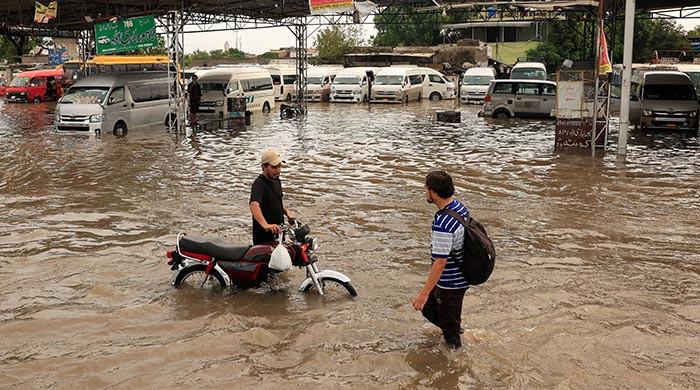Karachi's battered roads fuel traffic stress, leaving commuters mentally and physically drained
Post-rain gridlocks disrupt routines, intensifying exhaustion and fuelling widespread climate anxiety
August 28, 2025
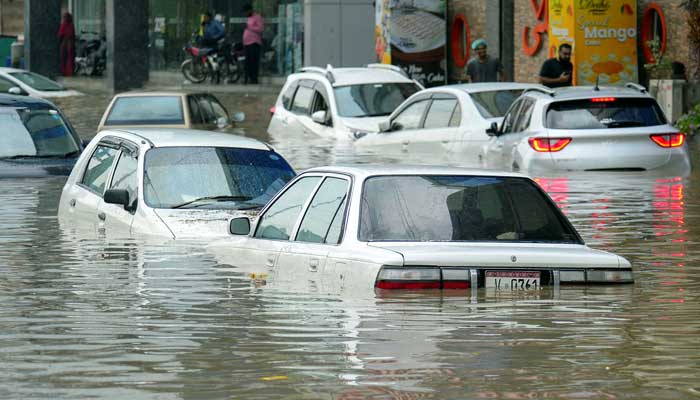
KARACHI: Weeks after the city’s torrential rains left roads battered and waterlogged, daily commuting in Karachi has turned into an exhausting ordeal, with prolonged traffic jams taking a toll on residents’ mental and physical health.
For many, what was once a manageable journey has now doubled in time. Saad Alam Angaria, a 28-year-old researcher, said he spends nearly one and a half hours getting home, compared to just 45 minutes before the rains. “I am totally drained when I reach home. Commuting from the office to home is equal to my activities all day,” he said, adding that the frustration has discouraged him from socialising or meeting friends.
Ayesha Izhar, a communications specialist, described how her 30-minute commute has stretched to 45 minutes amid damaged roads and waterlogging. “When I reach work in the morning I don’t feel energised. I feel like resting, as the noise and pollution make me sick,” she said, noting that prolonged sitting in uncomfortable vans has also triggered back pain.
For Tooba Khan, a 27-year-old marketing specialist, the situation has become equally overwhelming. “What used to be a 15-minute ride now takes almost 30,” she said. “It’s stressful. I feel anxious, and with the city’s security situation, you don’t really feel safe anywhere. Honestly, there are no shortcuts or quick routes left in Karachi anymore.”
Psychiatrist Dr Monica Vaswani warned that such stress can develop into long-term mental health challenges.
The mental health expert explained that those repeatedly stuck in rain-triggered traffic often develop climate anxiety — a fear of recurrence that may evolve into anxiety disorders.
“Even after treatment, patients can relapse in rainy weather because the trauma stays with them,” she cautioned, recommending early intervention through behavioural therapy and relaxation techniques to prevent the condition from worsening.
Residents say the prolonged traffic stress has left them fatigued, irritable, and less able to spend time with family.
With poor infrastructure and unpredictable blockages fuelling daily chaos, many fear that Karachi’s gridlocked roads are silently reshaping the city’s psychological landscape.




